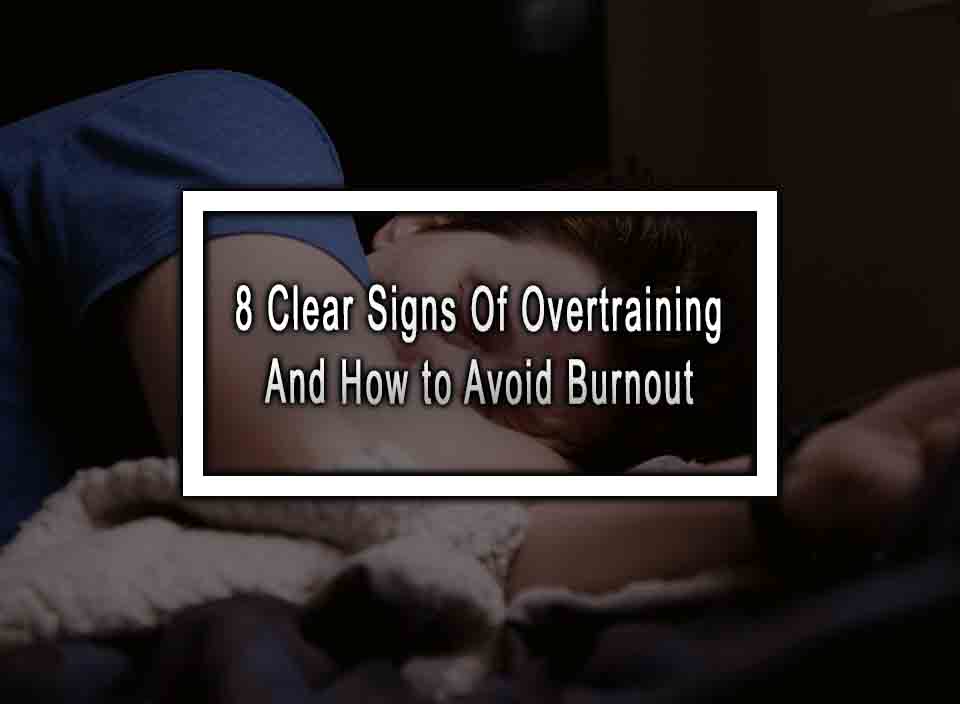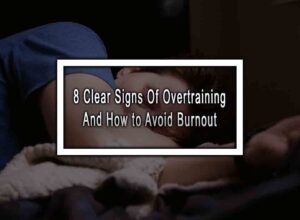Table of Contents
ToggleAre You Pushing Your Limits? Watch Out for These Telltale Signs of Overtraining
In today’s fast-paced world, it’s no surprise that many of us strive to achieve our fitness goals at lightning speed. However, pushing ourselves too hard without giving our bodies sufficient time to recover can lead to a phenomenon known as overtraining. While exercise is vital for a healthy lifestyle, it’s equally important to recognize the signs of overtraining to prevent burnout and ensure optimal performance. Whether you’re a seasoned athlete or a fitness enthusiast, let’s dive into the symptoms of overtraining and learn how to strike a balance between pushing ourselves and listening to our bodies.
1. Unexplained Drop in Performance
One of the first signs of overtraining is a sudden decline in your performance levels. If you find it increasingly difficult to lift weights you recently breezed through or notice a significant drop in your running pace, it’s time to pay attention. Your body may be sending you a signal to take a step back and give it some well-deserved rest.
2. Chronic Fatigue and Lack of Energy
Feeling constantly exhausted despite getting sufficient sleep? Overtraining can cause chronic fatigue and a persistent lack of energy. While some soreness after intense workouts is natural, if you find yourself dragging throughout the day and struggling to get through your workouts, your body may be telling you to dial it down a notch.
3. Frequent Illnesses and Weakened Immune System
Overtraining weakens your immune system, making you more susceptible to illnesses. If you notice a sudden increase in the frequency of colds, flu, or other infections, it’s a clear indication that your body is overstressed. Prioritizing rest and recovery becomes crucial to ensure a healthy immune system.
4. Persistent Muscle Soreness and Joint Pain
While delayed onset muscle soreness (DOMS) is normal after challenging workouts, prolonged and excessive muscle soreness coupled with joint pain can be a sign of overtraining. If your soreness lingers for days, hinders your daily activities, or worsens over time, it’s time to incorporate rest and gentle recovery exercises into your routine.
5. Disturbed Sleep Patterns
Overtraining can disrupt your sleep patterns, making it challenging to fall asleep or get quality rest. If you find yourself staring at the ceiling night after night or waking up frequently throughout the night, it’s crucial to reevaluate your training intensity and ensure you’re giving your body ample time to recover.
6. Irritability, Mood Swings, and Depression
Overtraining doesn’t just affect your physical well-being; it can also impact your mental health. If you notice sudden mood swings, increased irritability, or feelings of depression, it’s time to reassess your training regimen. Remember, exercise should uplift your mood, not dampen it.
7. Decreased Appetite and Weight Loss
Intense training can suppress your appetite, causing weight loss and muscle wasting. If you notice a significant decrease in your appetite or unintentional weight loss despite maintaining a balanced diet, it’s crucial to address the possibility of overtraining and give your body the fuel it needs to recover.
8. Lack of Motivation and Demotivation
Overtraining can leave you feeling mentally and physically drained, leading to a notable lack of motivation. If the thought of exercising brings no joy or you’re constantly dragging yourself to the gym, take a step back, and reassess your training routine. Remember, rest and recovery are an integral part of the fitness journey.
Conclusion
Overtraining can be a roadblock to achieving your fitness goals and maintaining overall well-being. By recognizing the signs early on and making adjustments to your training routine, you can prevent burnout and ensure consistent progress. Prioritize adequate rest, listen to your body, and remember that recovery is just as important as putting in the work. Embrace a balanced approach, and watch your performance soar while avoiding the pitfalls of overtraining.
Signs Of Overtraining FAQ
Here are the most common questions about signs of overtraining.
1. How long does it take to recover from overtraining?
The recovery time for overtraining can vary depending on the severity and individual factors. It may take anywhere from a few days to several weeks for a full recovery. It is important to listen to your body and gradually reintroduce training once you feel ready, to prevent a relapse into overtraining.
2. Can overtraining lead to long-term health problems?
If not addressed, overtraining can lead to long-term health problems, such as chronic fatigue, hormonal imbalances, decreased immune function, and increased risk of injury. It is important to take overtraining seriously and make the necessary adjustments to prevent long-term consequences.
3. Can overtraining lead to weight gain?
Yes, overtraining can potentially lead to weight gain. When the body is in a state of excessive stress from overtraining, it can release more cortisol, which is a hormone that can promote fat storage. Overtraining can also disrupt the balance between energy expenditure and intake, leading to weight gain.
4. What should I do if I suspect I am overtraining?
If you suspect you are overtraining, it is important to listen to your body and take appropriate action. Reduce your training volume and intensity, increase rest and recovery time, ensure proper nutrition and hydration, and consider consulting with a healthcare professional or sports coach for guidance.
Remember, everyone’s body is different, and what may work for one person may not work for another. It is important to pay attention to your body’s signals and adjust your training accordingly to maintain optimal health and performance.












